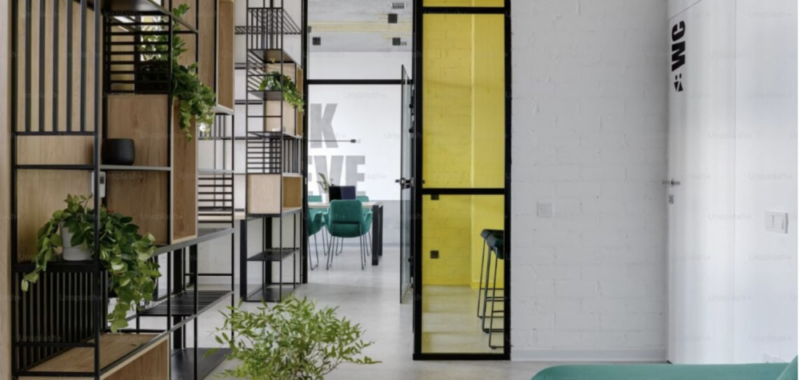The total number of coworking spaces in the U.S. has increased 7% from the previous quarter, exceeding 7,500 workplaces.
- Coworking spaces are experiencing significant growth in the U.S., with over 7,500 locations nationwide; cities like Nashville and Indianapolis showed notable increases.
- While membership pricing for coworking spaces remains mostly stable, some cities like Washington, D.C. offer affordable rates, whereas others like Manhattan are above average.
- The coworking market is maturing with increased consolidation and strategic partnerships, as well as a trend toward smaller spaces designed to support community and collaboration.
Article originally posted on Allwork.space.
Flexible workspaces mix all the benefits of working at home, in the office, and even at a coffee shop, and America has certainly caught on to this work perfect solution.
The U.S. coworking sector is experiencing substantial growth propelled by an increasing demand for flexible workspaces in the post-pandemic environment.
The total number of coworking spaces in the U.S. has surpassed 7,500, marking a notable 7% increase from the previous quarter, according to Coworking Cafe’s Q3 report.

As businesses adapt to remote and hybrid work models, coworking spaces are becoming not only more popular but also more accessible across the nation. This change emphasizes how people are ditching the traditional office vibe in favor of a more flexible, laid-back approach to work.
The reported growth is indicative of a robust and healthy supply of flexible workspaces designed to accommodate the changing patterns of work that companies and employees are embracing.
Nashville, in particular, has seen an impressive surge, with its coworking inventory growing by 24%, climbing from 90 to 112 spaces.
Other cities, such as Indianapolis and Philadelphia, also reported substantial increases in their coworking offerings, with Indianapolis seeing a 12% growth.
But not all markets are experiencing this upward trend. Some regions, including the Bay Area and Salt Lake City, showed stagnation in their coworking inventories, remaining at 124 and 75 spaces, respectively.
Additionally, Brooklyn, NY, was the only market among the top 25 to see a decrease in coworking spaces, showing the variability in demand across different locales.
Membership Rates Remain Steady
In Q3 of this year, the pricing for coworking memberships has remained relatively stable. Dedicated desks continue to hold a median price of $300 per month, reflecting a consistent valuation in this category.
Meanwhile, slight increases were noted for virtual offices and open workspaces, which saw their national rates rise by just $1, reaching $120 for virtual offices and $150 for open workspaces.
Washington, D.C. stands out as the most affordable market for virtual offices, offering rates as low as $80 per month. This contrasts sharply with New Jersey and Chicago, which are among the most expensive markets for virtual office memberships, pricing them at $210 and $205, respectively.
Several markets experienced significant price drops; in Phoenix and Philadelphia, virtual office rates decreased by $64 and $59, respectively.
When it comes to open workspaces, markets like Manhattan ($299), Brooklyn ($277), and Washington, D.C. ($249) continue to exhibit significantly higher rates compared to the national median.
However, several markets, including New Jersey, Philadelphia, and Phoenix, report prices below the national average, showcasing a diverse terrain in coworking pricing.
Leading Markets
The outlook of leading markets remains relatively stable, with Los Angeles, Dallas-Fort Worth (DFW), and Manhattan holding the top three positions in terms of the highest number of coworking spaces.
Los Angeles continues to lead with 292 spaces, adding 13 new locations in the last three months. DFW has solidified its position with 279 flexible workspaces, following a slight 3% growth, while Manhattan remains in third with 275 spaces, marking a 4% increase.
Inventory growth across the country varies dramatically. Nashville’s remarkable 24% increase showcases the market’s adaptability and responsiveness to demand. In contrast, Brooklyn experienced a minor decline, underscoring the complexities in different regional markets.
Market Growth and Industry Maturity
Nationally, the total square footage dedicated to coworking spaces grew by another 5% in the last quarter, bringing the total to over 133 million square feet.
Nashville also leads in this regard, with a 13% rise in coworking space coverage, reflecting its burgeoning status in the sector. San Francisco, too, logged a substantial increase of 12%, further solidifying its position as a critical player in the coworking market.
While the total national coworking square footage continues to rise, the average size of individual coworking spaces is on a downward trend. This decline suggests a growing focus on smaller coworking environments that cater to niche audiences and foster community engagement.
The average square footage at the national level stands at approximately 17,711 square feet, down from 18,133 in the previous quarter.
This trend of smaller spaces is reshaping how coworking operators design their environments to support collaboration and connectivity among members.
Distribution of Top Coworking Operators
The leading operators in the U.S. coworking market remain consistent, with Regus, WeWork, Industrious, Spaces, and HQ at the forefront.
Collectively, these operators logged a 3% increase in inventory on a national level and a 1% increase among the top 25 markets analyzed.
Notably, HQ has outperformed its competitors, expanding its spaces by 10% in Q3 alone — bringing its total to 236 locations.
As the industry continues to mature, strategic partnerships and consolidations are becoming more common.
For example, three established coworking brands — Office Evolution, Venture X, and Intelligent Office — have recently united to form VAST Coworking, which now boasts a total of 174 spaces across the U.S. This consolidation reflects the increasing significance of coworking networks and the diverse range of users they aim to serve.
With flexible workspaces becoming an integral part of the modern work environment, the implications for the future of work are profound. The rise of coworking spaces not only caters to the growing demand for flexibility but also encourages a collaborative and innovative atmosphere that can enhance productivity and employee satisfaction.

